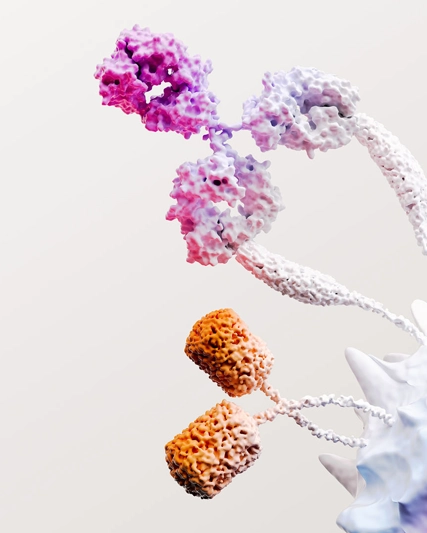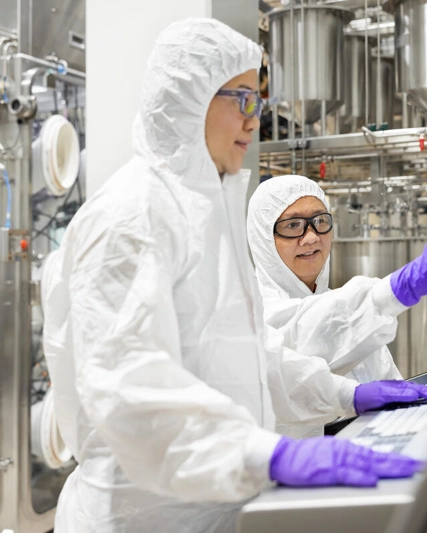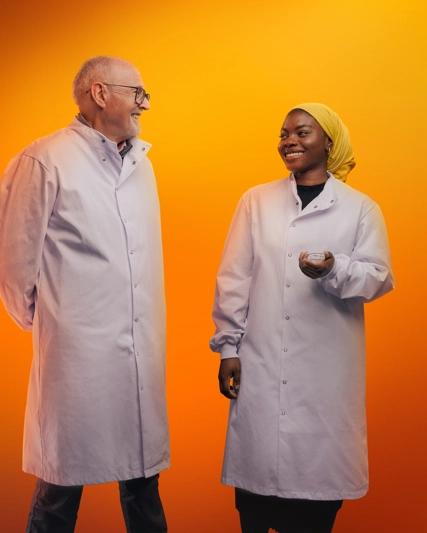Issued: London, UK
For media and investors only
GSK licenses Shigella vaccine candidate to Bharat Biotech for continued development
- Shigella poses a significant health threat to children under five in low- and-middle-income countries, where it is the leading bacterial cause of diarrhoea1
- Rise of antimicrobial-resistant bacteria like Shigella highlights critical need for a vaccine to prevent illness, help save lives, and tackle antimicrobial resistance (AMR)1,2
- Collaboration will accelerate GSK’s innovation and investment in early development, advancing late-stage vaccine development with the aim of achieving maximum health impact in populations who need the vaccine
GSK plc (LSE/NYSE: GSK) announced today that it has licensed its Shigella vaccine candidate, altSonflex1-2-3, to Bharat Biotech International Limited (BBIL). The agreement paves the way for the ongoing development and potential distribution of the vaccine in low-and-middle--income countries where Shigella, the leading bacterial cause of diarrhoea, poses a significant health threat to children under five.1,2
The Phase 1 clinical trial, and interim statistical analysis conducted to date from Phase 2 trials, has demonstrated promising results and confirmed the achievement of pre-set immunogenicity success criteria. The Shigella vaccine candidate uses innovative GMMA technology (Generalized Modules for Membrane Antigens), a novel platform discovered and developed by scientists in GSK’s Global Health team that uses tiny particles naturally released from bacteria – called outer membranes vesicles (OMVs) – to deliver antigens that trigger the immune system. GMMA technology is low-cost and scalable, making it ideal for producing affordable vaccines for low-income countries, while naturally stimulating a strong immune response often without requiring adjuvants, and offering versatility for targeting various bacterial diseases, such as Shigella4.
Thomas Breuer, Chief Global Health Officer, GSK said: “With young children in lower-income countries disproportionately impacted by Shigella, the development of a low-cost vaccine is an important goal for global public health. With no licensed vaccines widely available, the development of our Shigella vaccine candidate which has demonstrated promising clinical trial results, fills us with immense pride. We are proud to collaborate with Bharat Biotech, whose expertise in developing and supplying vaccines for infectious diseases, especially as a trusted supplier to Gavi, the Vaccine Alliance, and UNICEF, positions them to further advance this important work. This agreement allows us to combine our strengths in science, research, and technology with Bharat Biotech's capacity to develop and deliver vaccines at scale, potentially preventing illness and saving lives around the world."
The urgent challenge posed by increasing antimicrobial-resistant enteric bacteria including Shigella, highlights the broader impact a Shigella vaccine could have beyond helping to reduce illness and mortality rates. It has the potential to indirectly reduce antibiotic consumption and help to tackle the rise of antimicrobial resistance (AMR)5.
Following the technology transfer, GSK will collaborate with BBIL on its design of the Phase 3 trial and support BBIL’s efforts to secure external funding. This collaboration builds on GSK’s existing relationship with the Indian Biotech company, following a product transfer and license agreement in 2021 for the world’s first malaria vaccine, RTS,S.
Dr. Krishna Ella, Executive Chairman, Bharat Biotech, said: “As the market leader in vaccines for diarrhoeal infections—including rotavirus, typhoid, polio, non-typhoidal salmonella, cholera, and paratyphi—Bharat Biotech is proud to collaborate partner with GSK with the ambition to develop a Shigella vaccine candidate. Shigellosis continues to be a serious public health concern, particularly among children under the age of five in low- and middle-income countries, where access to timely and effective medical intervention can be limited1. The absence of a licensed vaccine, combined with the growing threat of antimicrobial resistance, underscores the urgency of developing effective, and affordable preventive solutions. Bharat Biotech is committed to leveraging its expertise in vaccine development and manufacturing to ensure that, if successful, this innovative vaccine reaches those who need it most. This licensing agreement reflects our shared commitment to global health equity and positions us to advance altSonflex1-2-3 through late-stage development, and if successful, through regulatory pathways, and large-scale manufacturing. The use of GMMA technology represents a potential breakthrough in vaccine design that aligns with our mission to make science-driven, accessible vaccines. Together with GSK, we aim to contribute to the fight against Shigella, prevent suffering, and help combat the rise of antimicrobial resistance, which continues to threaten millions of lives worldwide.”
Today’s announcement underscores GSK and BBIL’s shared ambition to get ahead of disease together and deliver health impact at scale through cutting-edge science and partnership.
About the vaccine candidate
GSK’s vaccine candidate, called altSonflex1-2-3, combines S. sonnei with S. flexneri 1b, 2a and 3a O Antigens, has been designed by scientists in GSK’s Global Health team with the ambition to develop an affordable vaccine with broad protection against the most prevalent Shigella serotypes. The vaccine uses GMMA technology (Generalized Modules for Membrane Antigens), a novel platform based on bacterial outer membranes for delivery of the O Antigen to the immune system6. GSK’s goal is to advance vaccine innovation against infectious diseases such as Shigella, contributing to the fight against antimicrobial resistance, which still causes millions of deaths worldwide.
About Shigella
Shigellosis is an acute human infection of the large intestine, characterised by watery diarrhea, fever, abdominal cramps and pain, bloody and mucus stools, caused by Gram-negative Shigella. Humans are the only natural host for Shigella7.
Shigella is a facultatively anaerobic, non-motile Gram-negative rod, from the family Enterobacteriacae. There are four different Shigella species: S. dysenteriae, S. flexneri, S. boydii, S. sonnei, divided into more than 50 different serotypes by the outer polysaccharide (O Antigen) of the lipopolysaccharide expressed on the bacteria surface8. The prevalence of these serotypes varies by country economic status, between geographical regions and changes over time even within one region, which has long presented a major challenge for vaccine development.
About GSK
GSK is a global biopharma company with a purpose to unite science, technology, and talent to get ahead of disease together. Find out more at gsk.com.
About Bharat Biotech International Limited
BBIL is a biotechnology company headquartered in Genome Valley Hyderabad, India, focused on providing affordable vaccines and bio-therapeutics for combating infectious diseases. BBIL has more than 145 global patents, a product portfolio of more than 19 vaccines and four biotherapeutics, registrations in more than 125 countries, and the World Health Organization (WHO) Pre-qualifications. BBIL has delivered more than 9 billion doses of vaccines worldwide, and has developed vaccines for influenza H1N1, Rotavirus, Japanese Encephalitis, Rabies, Chikungunya, Zika, Cholera, and the world’s first tetanus-toxoid conjugated vaccine for Typhoid.
To learn more about Bharat Biotech, visit www.bharatbiotech.com.
Cautionary statement regarding forward-looking statements
GSK cautions investors that any forward-looking statements or projections made by GSK, including those made in this announcement, are subject to risks and uncertainties that may cause actual results to differ materially from those projected. Such factors include, but are not limited to, those described in the “Risk Factors” section in GSK’s Annual Report on Form 20-F for 2024, and GSK’s Q1 Results for 2025.
References
- Raso MM, Arato V, Gasperini G, Micoli F. Toward a Shigella Vaccine: Opportunities and Challenges to Fight an Antimicrobial-Resistant Pathogen. Int J Mol Sci. 2023 Feb 28;24(5):4649. doi: 10.3390/ijms24054649. PMID: 36902092; PMCID: PMC10003550
- WHO Bacterial Priority Pathogens List, 2024: bacterial pathogens of public health importance to guide research, development and strategies to prevent and control antimicrobial resistance. Geneva: World Health Organization; 2024. Licence: CC BY-NC-SA 3.0 IGO https://www.who.int/publications/i/item/9789240093461
- Leroux-Roels I, Maes C, Mancini F, Jacobs B, Sarakinou E, Alhatemi A, Joye J, Grappi S, Cilio GL, Serry-Bangura A, Vitali CG, Ferruzzi P, Marchetti E, Necchi F, Rappuoli R, De Ryck I, Auerbach J, Colucci AM, Rossi O, Conti V, Scorza FB, Arora AK, Micoli F, Podda A, Nakakana UN; Shigella Project Team. Safety and Immunogenicity of a 4-Component Generalized Modules for Membrane Antigens Shigella Vaccine in Healthy European Adults: Randomized, Phase 1/2 Study. J Infect Dis. 2024 Oct 16;230(4):e971-e984. doi: 10.1093/infdis/jiae273. Erratum in: J Infect Dis. 2024 Dec 16;230(6):e1413. doi: 10.1093/infdis/jiae564. PMID: 38853614; PMCID: PMC11481318.
- Micoli F, Alfini R, Di Benedetto R, Necchi F, Schiavo F, Mancini F, Carducci M, Palmieri E, Balocchi C, Gasperini G, Brunelli B, Costantino P, Adamo R, Piccioli D, Saul A. GMMA Is a Versatile Platform to Design Effective Multivalent Combination Vaccines. Vaccines (Basel). 2020 Sep 17;8(3):540. doi: 10.3390/vaccines8030540. PMID: 32957610; PMCID: PMC7564227
- World Health Organization (n.d.). Immunization, Vaccines and Biologicals: Shigella. Retrived from https://www.who.int/teams/immunization-vaccines-and-biologicals/diseases/shigella
- Rossi O, Citiulo F, Giannelli C, Cappelletti E, Gasperini G, Mancini F, Acquaviva A, Raso MM, Sollai L, Alfini R, Aruta MG, Vitali CG, Pizza M, Necchi F, Rappuoli R, Martin LB, Berlanda Scorza F, Colucci AM, Micoli F. A next-generation GMMA-based vaccine candidate to fight shigellosis. NPJ Vaccines. 2023 Sep 5;8(1):130. doi: 10.1038/s41541-023-00725-8. PMID: 37670042; PMCID: PMC10480147.
- Centers for Disease Control and Prevention. (2023). Shigella – Clinical overview. U.S. Department of Health & Human Services. https://www.cdc.gov/shigella/hcp/clinical-overview/index.html
- D.P. Muthuirulandi Sethuvel, N.K. Devanga Ragupathi, S. Anandan, B. Veeraraghavan Update on: Shigella new serogroups/serotypes and their antimicrobial resistance Retrieved from Update on: Shigella new serogroups/serotypes and their antimicrobial resistance - Muthuirulandi Sethuvel - 2017 - Letters in Applied Microbiology - Wiley Online Library


